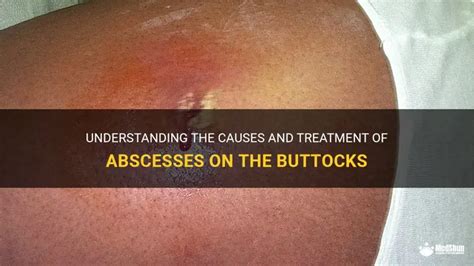Intro
Discover 5 effective ways to treat abscesses, including drainage, antibiotics, and home remedies, to alleviate pain and promote healing, while preventing infection and recurrence, using expert-approved treatments and self-care methods for abscess care and management.
An abscess is a painful and potentially serious medical condition that requires prompt and effective treatment. It is a collection of pus that has built up within the tissue of the body, often as a result of a bacterial infection. If left untreated, an abscess can lead to more serious health problems, including the spread of infection to other parts of the body. Fortunately, there are several ways to treat an abscess, and the most effective approach will depend on the size, location, and severity of the condition.
In recent years, there has been a growing interest in the use of alternative and complementary therapies to treat abscesses. While these approaches may not be suitable for everyone, they can be a useful addition to traditional medical treatments. It is essential to consult with a healthcare professional before attempting to treat an abscess, as they can provide a proper diagnosis and recommend the most effective course of treatment.
The importance of seeking medical attention for an abscess cannot be overstated. If left untreated, an abscess can lead to serious health complications, including sepsis, a life-threatening condition that occurs when the infection spreads to the bloodstream. Furthermore, untreated abscesses can also lead to the formation of scar tissue, which can cause long-term damage to the affected area.
Understanding Abscesses

Causes and Risk Factors
The causes and risk factors for abscesses are varied and complex. Bacterial infections are the most common cause of abscesses, and they can occur when bacteria enter the body through a cut or wound in the skin. Other risk factors for abscesses include a weakened immune system, poor hygiene, and certain medical conditions, such as diabetes and liver disease. Understanding the causes and risk factors for abscesses is essential for developing effective treatment and prevention strategies.Treatment Options

- Incision and drainage: This is a surgical procedure that involves making an incision in the abscess and draining out the pus.
- Antibiotics: These are medications that are used to treat bacterial infections, and they may be prescribed to help clear up the infection that is causing the abscess.
- Warm compresses: Applying a warm compress to the affected area can help to bring the abscess to a head and encourage it to drain.
- Pain relief: Over-the-counter pain medications, such as acetaminophen or ibuprofen, can help to relieve the pain and discomfort associated with an abscess.
Home Remedies
There are several home remedies that can be used to help treat an abscess, including:- Applying a warm compress to the affected area
- Using tea tree oil to help reduce inflammation and fight infection
- Taking over-the-counter pain medications to help relieve pain and discomfort
- Practicing good hygiene to help prevent the spread of infection
Prevention Strategies

- Practicing good hygiene: Keeping the skin clean and hygienic can help to prevent the spread of infection and reduce the risk of developing an abscess.
- Avoiding close contact with others: Avoiding close contact with others who have an abscess or other infection can help to reduce the risk of transmission.
- Getting regular medical check-ups: Regular medical check-ups can help to identify any underlying medical conditions that may increase the risk of developing an abscess.
- Maintaining a healthy lifestyle: Eating a healthy diet, getting regular exercise, and managing stress can all help to boost the immune system and reduce the risk of developing an abscess.
Complications and Risks
If left untreated, an abscess can lead to serious health complications, including sepsis, a life-threatening condition that occurs when the infection spreads to the bloodstream. Other potential complications and risks associated with abscesses include:- Formation of scar tissue: Untreated abscesses can lead to the formation of scar tissue, which can cause long-term damage to the affected area.
- Spread of infection: Abscesses can spread to other parts of the body, causing further infection and potentially life-threatening complications.
- Reduced immune function: Repeated or severe abscesses can weaken the immune system, making it more difficult for the body to fight off future infections.
Conclusion and Next Steps

We invite you to share your thoughts and experiences with abscesses in the comments section below. Have you or someone you know been diagnosed with an abscess? What treatment options were used, and what were the results? By sharing our knowledge and experiences, we can work together to raise awareness and promote better health outcomes for individuals affected by abscesses.
What is an abscess?
+An abscess is a collection of pus that has built up within the tissue of the body, often as a result of a bacterial infection.
What are the symptoms of an abscess?
+The symptoms of an abscess can vary depending on the location and severity of the condition, but common symptoms include pain, swelling, redness, and warmth to the touch.
How is an abscess treated?
+An abscess can be treated with a variety of methods, including incision and drainage, antibiotics, warm compresses, and pain relief medications.
Can abscesses be prevented?
+Yes, abscesses can be prevented by practicing good hygiene, avoiding close contact with others who have an abscess or other infection, getting regular medical check-ups, and maintaining a healthy lifestyle.
What are the potential complications of an abscess?
+If left untreated, an abscess can lead to serious health complications, including sepsis, formation of scar tissue, and reduced immune function.
